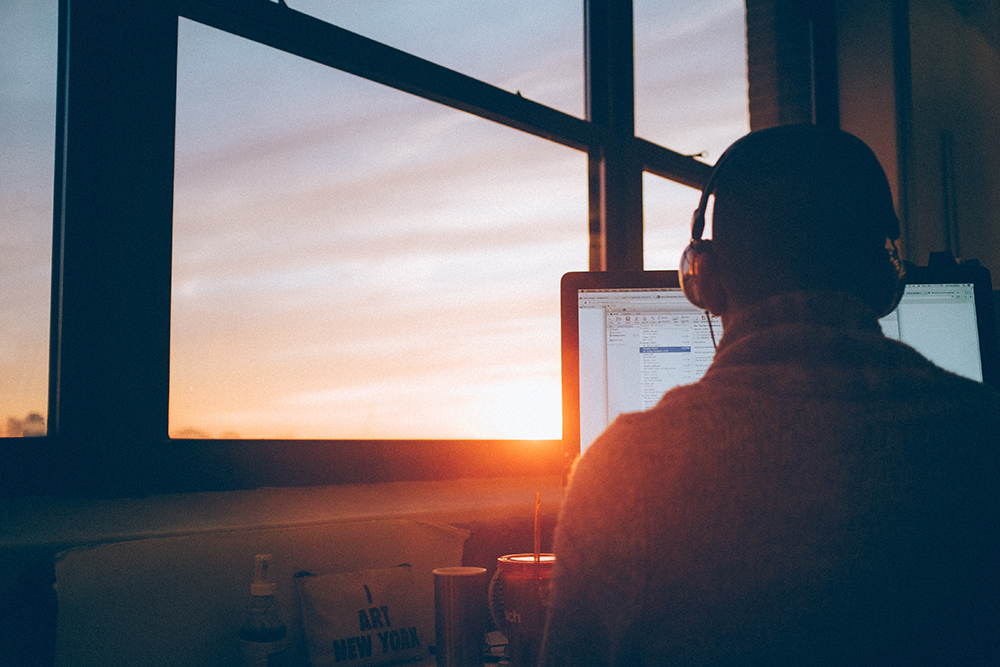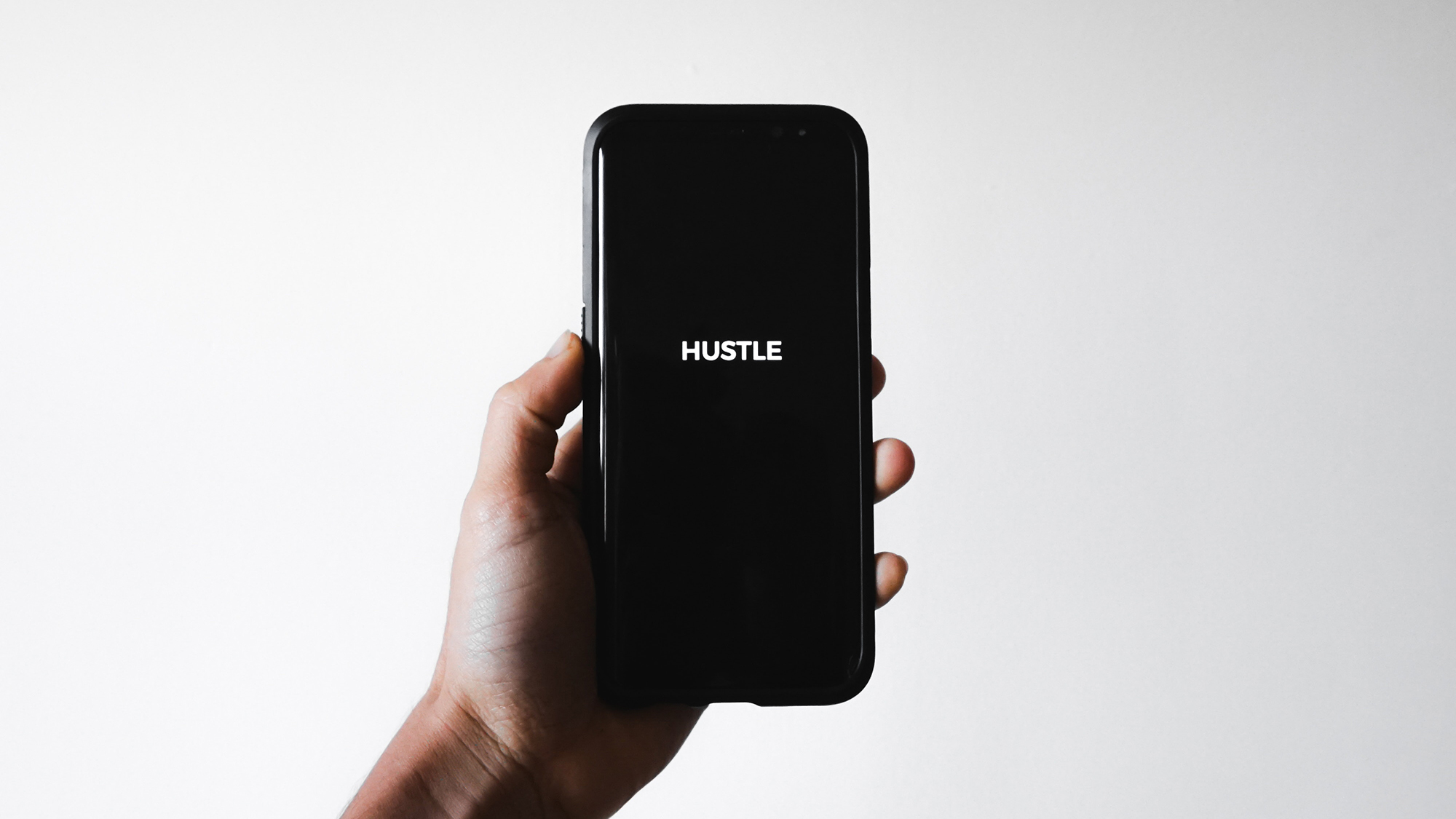Counting our blessings is a wonderful way to enhance our appreciation for what we have. When we feel grateful we elevate our mood, lower stress levels and feel more calm, confident and capable.
While the choices we make around how we live and work are unique to us, we’re also highly influenced by societal and cultural norms.
It’s been estimated we spend about 1/3 of our lives at work and unless you’re self-employed it’s a contractual arrangement. You are employed to perform a number of tasks for which you receive a paycheck. Sometimes we love the work we do, sometimes we don’t. Sometimes we’re asked to do overtime and sometimes there’s a culture of expectation to put in the extra effort and hours as a way of demonstrating your commitment to the cause and worthiness of being considered for promotion.
There’s just one problem. Overwork doesn’t work. Studies have shown how working beyond 55 hours a week adds little if anything to productivity. It seems that 40 hours is the optimal amount. Not only that, overwork can lead to significantly poorer mental and physical health. John Pencavel from Stanford found that overwork provides insufficient time for individuals to restore and recover, meaning subsequent work performance suffers.
Which is why when I read the reports of Jack Ma the billionaire founder of Alibaba extolling the virtues of working 996 (9 am to 9 pm a day six days a week) as a huge blessing for Chinese workers I was aghast, frustrated and above all angry.
Because overwork is killing people.
Think I’m exaggerating? Sadly not.
In 2016 the Xinhua News Agency reported how 600,000 Chinese workers die each year from spending too much time on their jobs. Guolaosi is the Chinese term for death from overwork and in China unsafe and excessive working hours sadly remain widespread.
Many of these deaths are not reported on, though the death of a 31-year-old Chinese surgeon Fang Peihu in the Anhui Province was. His adoption of overworking practices over an eight-year period being upheld as a virtuous example for others. His death led to a backlash where other medical practitioners condemned the practice.
The culture of overwork is not new and is certainly not limited to China. Karoshi is the Japanese term for death from overwork commonly due to heart attack, stroke or suicide.
In a previous blog, I wrote about how one in five Japanese workers were identified in a 2015 Government survey as being at risk of death by overwork.
If twenty percent of the overworking population is truly is at risk of death from overwork – how can that ever be conceived of as a pre-requisite for “success”?
Recognising the seriousness of the problem, the Japanese Government are now taking steps to introduce work-interval reforms and are considering a mandatory annual 5-day holiday.

Are You Too Tired to Think?
It’s easy to feel a certain smugness in the western world, that that type of overwork is not condoned, but of course, we have been just as guilty.
As a junior doctor working in the NHS in the 1980’s, it wasn’t uncommon to be working the dreaded 1:2 where you were on call every second night. Here you worked your usual day shift then stayed at work “on call” all night often getting little or no sleep followed by another normal work day before finally getting home for a night in your own bed.
It’s a wonder we didn’t either kill our patients or ourselves in the process.
The level of sleep deprivation here is frightening; especially in light of understanding how this impacts our ability to think, make decisions and process information quickly.
Once we have been awake for 17 hours our level of cognition drops to the level equivalent to having a blood alcohol reading of 0.05.
The death of 21-year-old Bank of America intern Moritz Erhadt in 2013 after working 72 hours straight caused ripples in the global finance industry where the culture of working 15-hour days and pulling all-nighters had been seen as normal for ambitious interns keen to make a mark and get a full-time position.
As a result, Goldman Sachs made a move towards addressing this by imposing a ban on working between midnight and 7 am. Sounds good doesn’t it until you realise that still allows for a 17-hour working day and doesn’t take into account travel time to and from your place of work, downtime with partners and family and time to sleep. The luxury being afforded here is around 5 hours sleep a night.
Wonderful. Not.
We do our best work when refreshed and reenergized with sufficient downtime to eat, sleep and relax.
Working hard to achieve a positive outcome is not without its merits, but this is about recognising when to stop and acknowledge our physiological and psychological limits. Being told you can only expect success by sacrificing your health, family and your life for work is a blatant untruth.
It’s time to get smarter about how we work and abandon the wrong idea that you can only achieve success by working yourself into an early grave. It’s about doing less to achieve more, challenging time-wasting procedures and inefficiencies and seeking to innovate new and better ways of functioning.
Overwork Damages Brains and Bodies
Chronic overwork leads to what I call Busy Brain Syndrome, where the over-stimulated and exhausted brain can no longer switch off, affecting our physical, mental and cognitive wellbeing.
Perhaps you’ve noticed how being chronically tired leads to the loss of self-care. Plans to exercise fly out the window, healthy eating is replaced with snack and fast food, sleep is disturbed and then there’s the risk of an increasing reliance on potentially addictive substances including smoking and alcohol.
Overwork leads to raised levels of the stress hormones, cortisol and adrenaline. A review led by UCL London that analysed data from 25 studies involving over 600,000 people and another 17 studies of 528,000 people found that working more than 11 hours a day increases your risk of heart attack by 67% compared to those who work 7-8 hours.
Overall the review found that working more than 55 hours a week increases our risk of stroke by 33% and heart attack by 13% compared to working the standard week of 35-40 hours, even after accounting for other risk factors of age, sex and socio-economic status.
Hmm, is all that overtime really worth a few extra dollars in your pocket?
We’re dead for an awfully long time.

Overwork Stifles Creativity and Innovation
We all carry a certain amount of mental load. But when that load is super-heavy, the compounding effect of that mental fatigue is the equivalent of trying to swim upstream in a river of molten toffee full of nuts – it’s exhausting, frustrating and ineffective.
When you’ve got a lot of your mind your brain compensates by seeking the easy route of going with what you already know, rather than seeking to allow your imagination to come up with new ideas. It’s because it doesn’t have the mental space (read energy) to allow you to think more broadly.
Regular uncluttering our mind from work-related activities would not only give Marie Kondo great joy, but it also helps us all to find greater peace of mind, new insights and happiness. What you choose to do here is less important than actually doing something different, whether it’s scheduling a regular weekend break, a daily appointment just for you to exercise, meditate, read or snooze or a 5-minute break out of the daily humdrum of busyness.
Overwork Leads to Anxiety and Depression
It’s not just Facebook that’s making us anxious. Feeling overwhelmed by having too much to do and always operating from a place of time poverty is contributing to the epidemic of workplace stress and mental distress.
The new buzzword of psychological safety acknowledges the need for effective stress management to deal with the very real problems of disengagement, loss of motivation and loneliness being experienced at work, starting by ensuring working hours are reasonable.
The solution to overwork requires individual and collective input beginning with,
1. Providing an environment that supports best workplace practice and making downtime a necessity not a luxury.
For example, current pilot fatigue management means the maximum daytime flight hours are now 9, (8 at night) with rest periods of 10 hours, including the opportunity for 8 hours of uninterrupted sleep.
Things have improved in the medical system too, though reports from the AMA indicate one in two doctors in public hospitals are still working unsafe shifts.
Volkswagen turn off their internal servers between 7 pm and 7am to prevent work-related emails being sent.
2. Nurturing positive interpersonal relationships built on trust, kindness and friendship.
Looking out for each other doesn’t have to be hard, it’s about remembering to step out of our bubble of busy to notice what’s going on around us and to take appropriate action as required.
3. Deciding how much is enough.
If you have no boundary to delineate the distance between start and finish, how do you know when you’ve got to your destination? Setting realistic and flexible deadlines can help. It’s good to have a finish point in mind, but if other projects, tasks or life circumstances indicate it’s going to be impossible to achieve, acknowledging our human fallibilities (if they are such) including the need for sufficient good quality uninterrupted sleep and time away from the office, grants us permission to alter or reschedule our goals.
4. Getting better at saying “No.”
If you’re a people pleaser this can feel hard. But failing to do so increases the risk of the burden of failure, resentment for the person who’s added to your load and eventual burnout.
5. Scheduling time out to think, or not.
Two of the biggest challenges we face from overwork is firstly not taking the time out to think quietly, reflectively and deeply, meaning we stay caught up the perpetual hamster wheel of over-busyness and overwork. Secondly, it denies us the space to let go of all that focused thought, to be more mindful and present to what is happening now leads us to be either fixated on future planning or past ruminations.
We’re now operating in a global village, meaning it’s vital that everyone be provided a safe working environment which cannot happen while outdated and dangerous workplace beliefs including overwork are allowed to fester and persist.
That’s why it’s important to have leaders who care sufficiently for the health and wellbeing of every person who works for them based on the understanding of why overwork isn’t just outmoded, it’s dangerous.
That’s smarter, sharper thinking at work.


